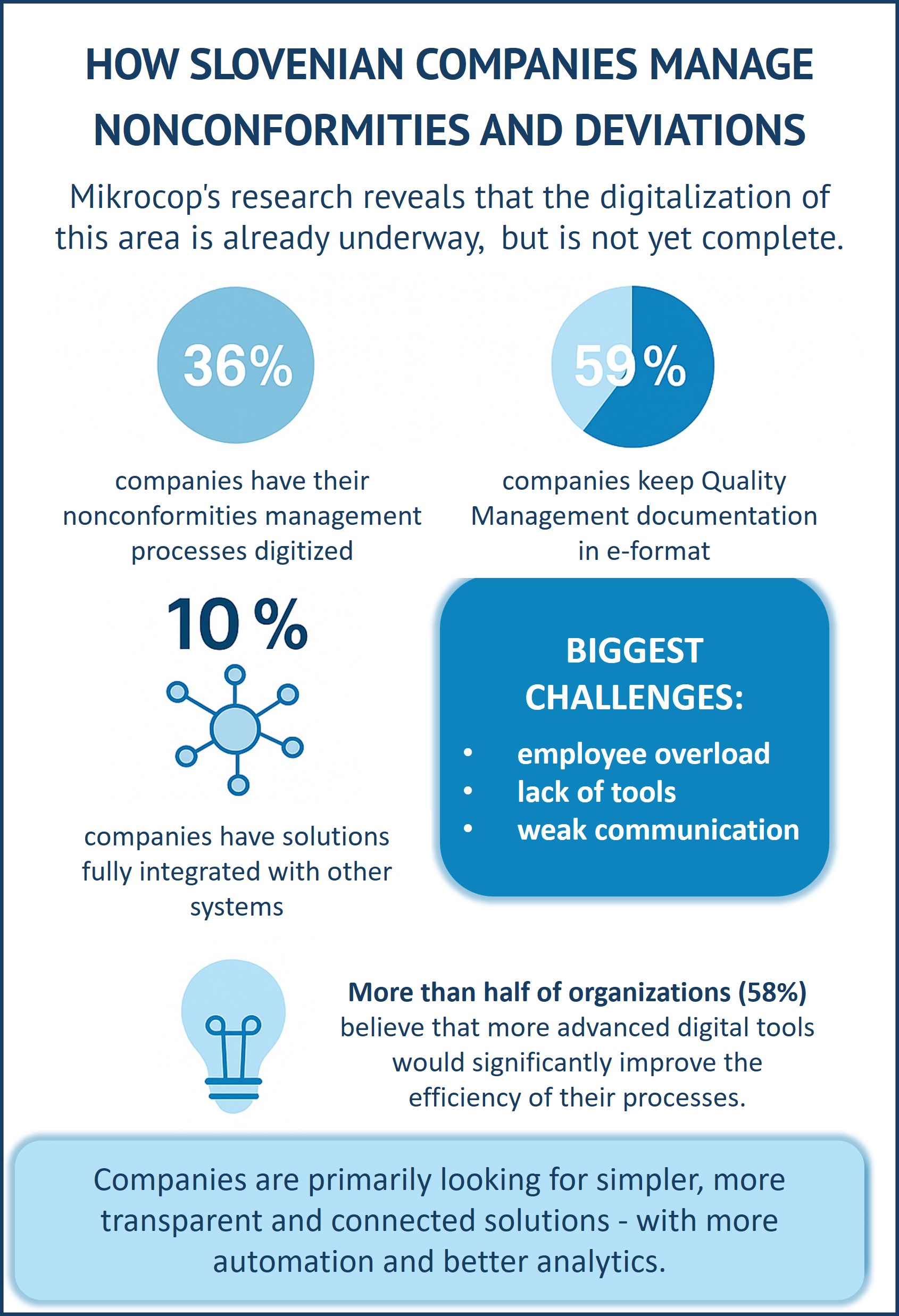Research on managing nonconformities and deviations completed
We have completed the research “How Slovenian companies manage nonconformities and deviations – insight into the state of digitalization” to gain a clearer understanding of the current situation in Slovenian companies.
Processes for managing nonconformities and deviations enable companies to detect irregularities in time, assess risks, and take appropriate actions. They are a key part of quality management, which is why it is important that they are well designed and technologically supported. These processes significantly contribute to greater safety and traceability, promote a culture of continuous improvement, and have a strong impact on business performance.
The trend of digitalization is also increasing in this business area, and we wanted to find out how well these processes are digitally supported. Digital tools make it easier to record nonconformities, automate reporting, increase transparency, and more efficiently monitor the implementation of corrective actions, allowing responsible personnel to focus more on root cause analysis and preventing the recurrence of errors.
Our research included 69 organizations of various sizes and industries, with half of the participants coming from the private sector.
Key findings of the research:
- most organizations still use a combination of manual and digital procedures for recording nonconformities,
- digital tools are most commonly used for monitoring corrective actions and reporting nonconformities and deviations,
- the main challenges are related to workload, resistance to change, and the lack of appropriate tools,
- organizations that have already implemented digitalization report greater efficiency and faster responses to nonconformities,
- interest in further digitalization is growing, especially among larger companies.
You can read the detailed research results and their interpretation in the blog post.
